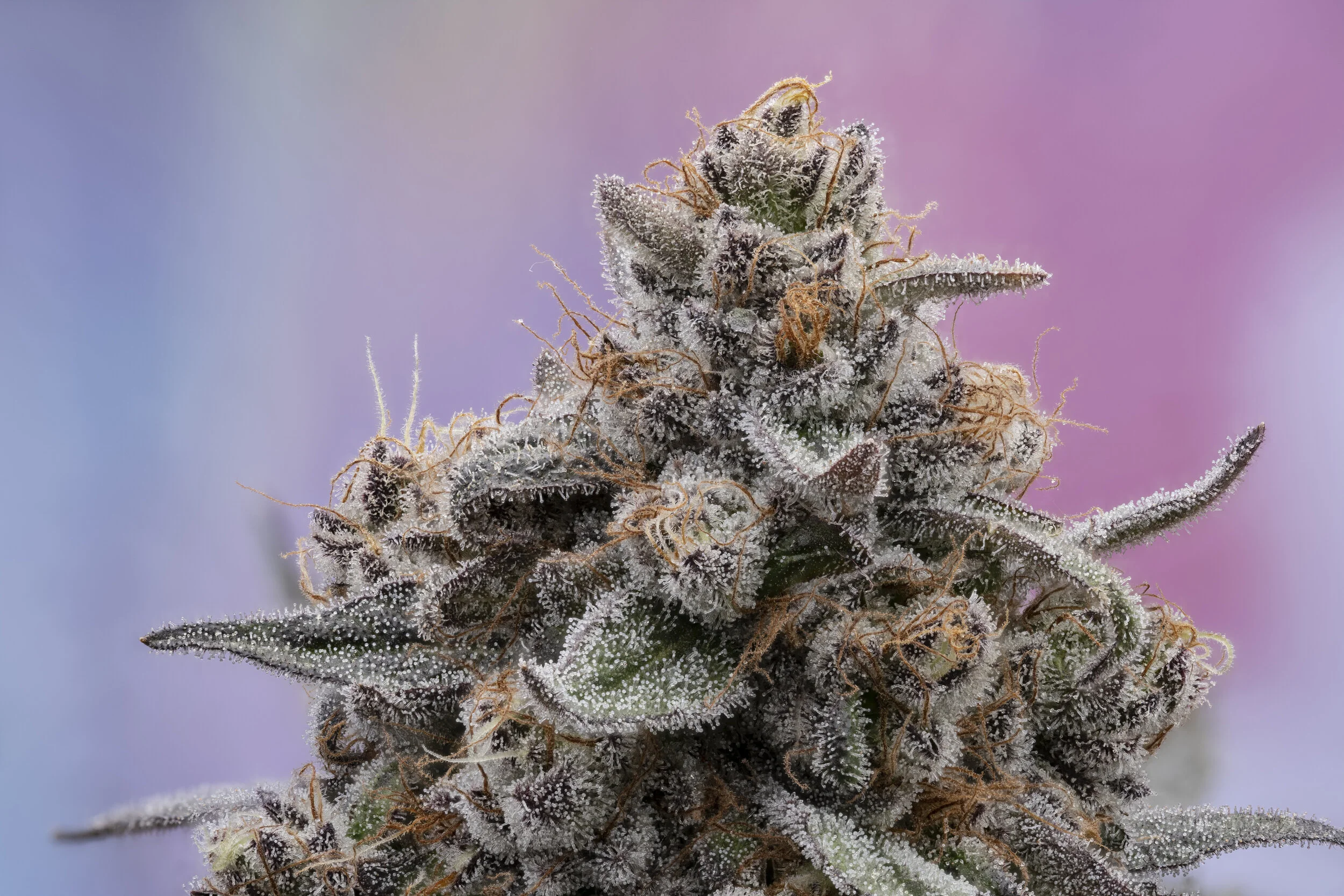Instaban: Navigating cannabis marketing challenges with Art of Cannabis Co
Despite state regulatory changes, the legal cannabis industry still faces unique marketing challenges due to its federal prohibition.
In the state of Oklahoma there were a handful of advertising rules set forth by SQ 788. Medical marijuana and medical marijuana products shall not contain any statements, illustrations or other material that:
(1) Is deceptive, false, or misleading;
(2) Represents that a licensee is engaged in medical marijuana commercial services for which the licensee is not licensed; Promotes overconsumption;
(3) Represents that the use of marijuana has curative or therapeutic effects;
(4) Depicts a child or other person under legal age consuming marijuana;
(5) Depicts objects such as toys, cartoons, cartoon characters, or similar images, which suggest the presence of a child, or any other depiction designed in any manner to be especially appealing to children or other persons under legal age to consume marijuana; or
(6) Has any manner or design that would be especially appealing to children or other persons under eighteen (18) years of age.; or
(7) Could cause a reasonable patient to believe the medical marijuana was grown in another state or to be confused as to the state of origin of the medical marijuana or medical marijuana product.
Many of these are common sense marketing laws that apply to relatable age restrictive industries like casinos, alcohol or tobacco. But not being able to market medical marijuana as “therapeutic,” creates issues for businesses attempting to connect with patients that sometimes skew the line of the program’s intended medical nature in comparison to an adult use recreational program. It also inadvertently sustains the perception of a stigmatized culture and medicine.
This perception and problem made its way to the Oklahoma State legislature in the form of SB 1257 which proposed to ban the use of billboards by medical cannabis businesses, limiting already limited marketing opportunity. This got the ACLU involved, who claimed that a marijuana billboard ban violates free speech.
“A billboard is speech. Using a billboard, whether that’s to communicate a political message or to communicate a commercial message is speech and the constitution says that you can regulate that in very narrow circumstances.”
-ACLU Executive Director Ryan Kiesel
Ultimately, the billboard ban didn’t become a law in Oklahoma. Nonetheless, it highlights the fact that cannabis businesses from state to state have their own unique set of regulatory challenges to mount—before even considering the ways in which federal prohibition impacts what marketing avenues are left to explore.
Federal prohibition makes marketing pains worse
Federal prohibition limits available marketing channels in a variety of ways. For example, radio and TV stations would risk their FCC license running cannabis related ads and without the FCC issuing a ruling on the subject, there’s no sign that’ll change independently of a federal overhaul.
Additionally, federal prohibition and the resulting societal perception informs the advertising policies for tech giants such as Google, Facebook and Instagram. The main place where people search for and find what they’re looking for, Google, does not permit ads that promote the use of, sale or even educational content about cannabis. Regardless if you are trying to run an ad for a medical marijuana business or product, Google classifies cannabis as a recreational drug in their advertising policy and will not allow it.
With traditional marketing avenues outright restricted, cannabis business owners are corralled mostly into social media marketing where differentiation is difficult and creativity is needed to not have your account deactivated without warning. Whether it’s the result of an over aggressive algorithm or whistle blowing competitors, when a business page gets deactivated it means the insta-loss of invaluable marketing assets and client connections which sometimes take years to build.
“Over the course of one year I grew their account to 3,200 and I woke up one morning and it was gone… a year of work was gone…”
“The Social Dilemma”
Photo by Art of Cannabis Co. | @artofcannabis.co
Social media giants have their own set of restrictive rules. Instagram’s policy even prohibits any marijuana seller, including legal dispensaries, from promoting their business by providing contact information like phone numbers, email addresses, street addresses, or by using the “contact us” tab in Instagram Business Accounts. While every social platform has advertising restrictions baked into their Terms and Conditions, Instagram seemingly targets marijuana business and advocacy accounts.
Oklahoma native Rhys Harper, better known now as @artofcannabis.co was a wedding photographer when covid caused the world to shut down almost overnight. “As soon as the pandemic hit all of our weddings were cancelled. And as soon as they announced cannabis was an essential business, I thought this was a niche I could get behind,” Rhys said. “I bought a lot of gear and a bunch of concentrates and started building my portfolio. And that was basically my entry into cannabis.” Rhys had taken a job as a marketing manager for a local dispensary who tasked him above all to grow their Instagram account. “Over the course of one year I grew their account to 3,200 and I woke up one morning and it was gone… a year of work was gone…”
At this point everyone knows the risk is there. Unfortunately, that doesn't make it any easier to manage or mitigate.
“In the last two or three months it’s been really bad… 710 Labs got deleted last week. I was really shook when that happened,” he shared. “It’s a constant reminder that no one is safe... It kind of makes me nervous when a post goes viral - because with that increased visibility comes increased risk.”
Gies Law Firm’s Facebook Ads account was even recently “indefinitely suspended” for promoting a post that displayed a review we received for our legal services in the industry. Even when a post itself seems to go by the books, social algorithms can go so far as to scrape linked landing pages and flag content that would be in violation of their platform’s community guidelines, which can range from a blog about How to get for a grow license in Oklahoma (the first time our ad account was flagged), or a dispensary website that has e-commerce ordering options. While a lengthy and mysterious appeal process eventually got our ad account reinstated, not everyone is so lucky. Many clients who have had their social media accounts deactivated believed they were following Facebook and Instagram community guidelines as carefully as possible and very few have been able to recover their account.
No matter how well you think you’re following the guidelines laid out by Facebook, Instagram and even email marketing platforms such as Constant Contact and Mailchimp, cannabis business professionals still risk losing their accounts and all associated marketing assets with each post.
What's left to do? In the case your account does get deactivated, the only real course of action you have is to go through the platform’s appeal process and hope for the best. Beyond that, Rhys suggests to stay consistent…
It demonstrates consistency on social is key—you have to build such a brand presence that people are looking for you if you’re gone. I own the fact that sometimes our accounts get deleted, but at the end of the day I’m here to bring consistency or quality. If it happens to me, I’ll just get back on. It’s more about the connections I’m making and relationships I’m building than the follower count.
-Rhys Harper | Art of Cannabis Co.
“For me, I realized the easiest way to set myself apart from anything that looks like illegal sales is to make it look like beautiful art,” Rhys continued. ”No one is not at risk. There is no way to eliminate risk. But I do find going the art route, showcasing the work you’re doing is the route to take.”
Rhys recently published a book of cannabis photography titled The Art of Cannabis Photography and will be on the road for book tours as well as a few marketing and macro demos for cannabis professionals and creatives. Rhys’ last word of advice for those just getting into the game or hitting a wall is find a niche and become a subject expert—something that certainly seems to be working for him.
“Becoming a subject expert on cannabis not only allowed me to truly unlock all the potential of cannabis in my own life, and transform my own life, but as a professional it’s so important,” he said. “Know how it can benefit your own life, really learn what it is you’re good at, what you want to do and who your target client is.” Beautiful photos help too.
Keep up with Rhys and Art of Cannabis Co. via his website, YouTube or Instagram. Hopefully all his accounts—and yours— are here to stay.






